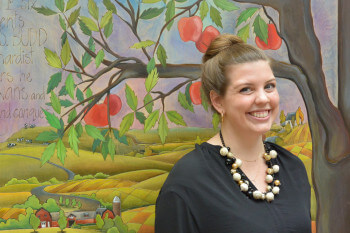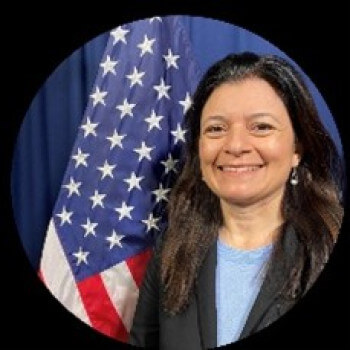08:00 AM - Welcome: USDA Chief Economist Seth Meyer
08:05 AM - Trade Policy Outlook: Gregg Doud, President of the National Milk Producers Federation and former U.S Chief Agricultural Trade Negotiator
08:40 AM - 2025 Agricultural Economic & Foreign Trade Outlook: Chief Economist Seth Meyer
09:15 AM - Remarks by Jeff Schmid, President and CEO Federal Reserve Bank of Kansas City
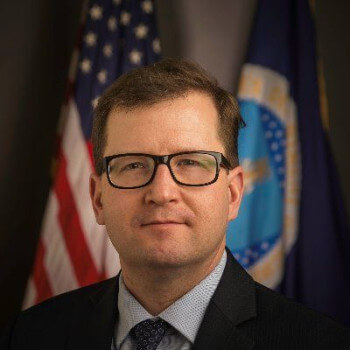
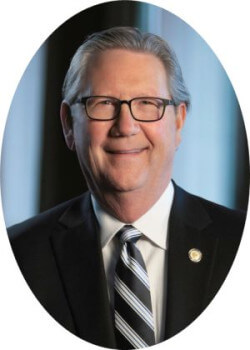

Plenary Session: Addressing the Challenges Agriculture Faces Today
- Hugh Weathers, South Carolina Commissioner of Agriculture
- Shari Rogge-Fidler, President, Farm Foundation
- Cristina Rohr, Managing Director, Food & Agriculture Investment Team, S2G Ventures
- Moderated by: Jayson Lusk, Vice President and Dean of Agricultural Programs, Oklahoma State University

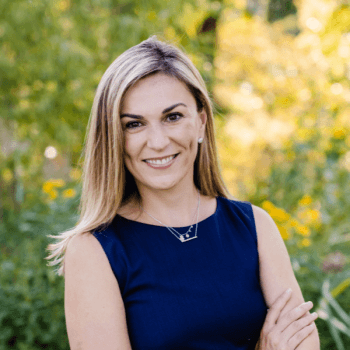
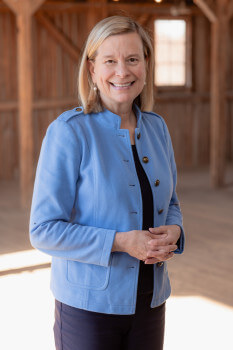
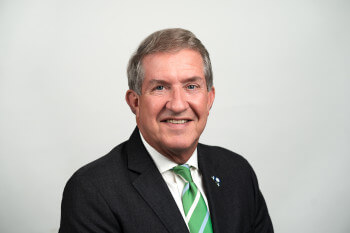
As a fact-based, data-driven, customer-focused organization, USDA is increasingly leveraging its vast administrative and programmatic data. This session will feature a variety of ways USDA is using data visualizations to describe key findings effectively, making the data more accessible and transparent to a range of new and current data users.
Moderator: Lance Honig, Director, Methodology Division, National Agricultural Statistics Service
New Livestock Mandatory Reporting Live Cattle Dashboard Personalizes Data
This demonstration will showcase the Live Cattle Dashboard, an interactive data visualization tool that allows stakeholders to efficiently customize information for greater market insights.
Speaker: Charlie Potts, Supervisory Market Reporter, Agricultural Marketing Service
NASS Release of Contiguous U.S. and Hawai’i 10m Cropland Data Layer Products
The release of the inaugural 10-meter resolution NASS 2024 Cropland Data Layer data visualization product for the contiguous U.S. and Hawai’i will be discussed.
Speaker: Rick Mueller, Section Head, National Agricultural Statistics Service
ERS Wheat Data Visualization Tutorial
This overview will cover ERS' Wheat Data Visualization tool, which offers interactive ways to explore trends in the U.S. and international wheat markets.
Speaker: Bryn Swearingen, Agricultural Economist, Economic Research Service
Introducing USDA’s Agriculture and Forestry GHG Inventory Data Viewer
USDA’s new data viewer allows users to explore and download agricultural and forestry sequestration and emissions data by production sector, state, or greenhouse gas.
Speaker: Liz Marshall, Senior Economist, Office of Energy and Environmental Policy
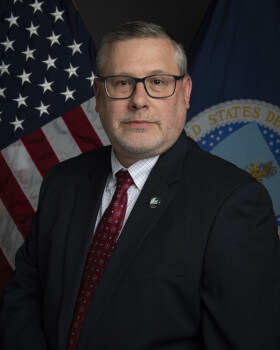
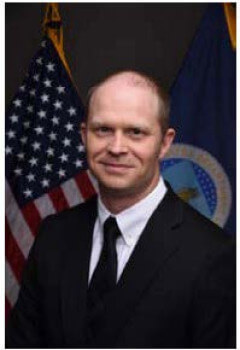

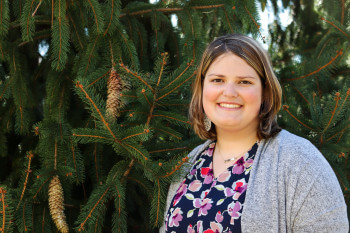
This presentation will describe the latest USDA farm sector income and wealth forecasts through 2025. In this session, presenters will explore the short-term outlook for U.S. farm sector income and the current state of agricultural credit conditions. Additionally, the discussion will highlight the impact of energy production on farm income, examining its contributions and significance within the sector.
Moderator: Jackson Takach, Chief Economist and VP of Strategy, Research, and Analytics, Farmer Mac, Washington, DC
USDA Farm Income Forecast
This presentation will describe the latest USDA farm sector income and wealth forecasts (through 2025).
Speaker: Carrie Litkowski, Senior Economist, USDA Economic Research Service, Washington, DC
Agricultural Credit Conditions
This presentation will explore recent trends and issues affecting agricultural lending and credit conditions, including interest rates and farm real estate values.
Speaker: Nathan Kauffman, Senior Vice President and Omaha Branch Executive, Federal Reserve Bank of Kansas City, Omaha, NE
The Role of Energy Payments in Farm Income
A significant portion of energy production in the United States takes place on farms, which can have substantial economic implications for the farmers who host such developments. This presentation looks at energy payments made to farmers for the production of oil, natural gas, and wind energy on their land.
Speaker: Justin Winikoff, Research Agricultural Economist, USDA Economic Research Service, Kansas City, MO
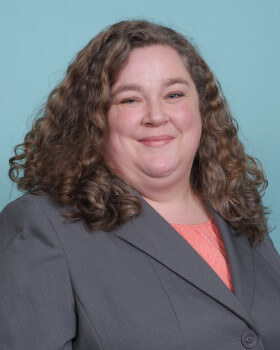
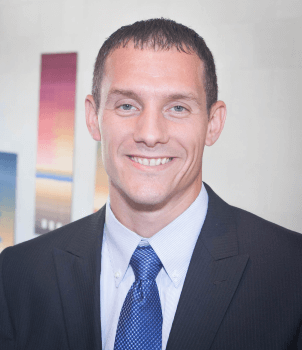
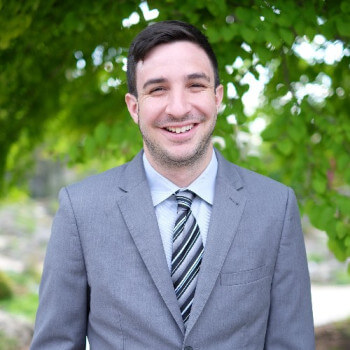

The Inflation Reduction Act has developed tax credits for biofuels that are based on the carbon intensity of the biofuel. USDA has developed new methods to ensure that biofuel feedstocks produced with climate-smart farming practices can be assigned a lower carbon intensity than conventionally produced feedstocks. This session will review these newly developed methodologies.
Moderator: William Hohenstein, Director, Office of Energy and Environmental Policy, USDA Office of the Chief Economist, Washington, DC
Speaker: Brian Jennings, Chief Executive Officer, American Coalition for Ethanol
Speaker: Michael Wang, Director of the Systems Assessment Center, Argonne National Laboratory
Speaker: Bruno Basso, John A. Hannah Distinguished Professor, Michigan State University
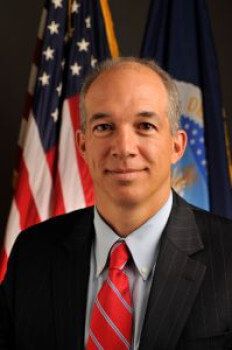



This session will provide an overview of the myriad challenges that PFAS poses to agriculture, highlight technological and procedural breakthroughs in research and development that will aid in solution creation, and explore the economic and social impacts of existing PFAS issues, along with potential strategies for addressing these problems and mitigating their effects.
Moderator: David Smith, Supervisory Research Physiologist, USDA ARS, Fargo, ND
Problems Posed by PFAS in Agricultural Production Systems and in Food Systems
The seemingly ubiquitous presence of PFAS in water, soil, and feedstuffs throughout the agricultural ecosystem presents great challenges to food producers, food processors, regulatory authorities, and consumers throughout the United States. Farmers and ranchers, including organic producers, have immediate needs to know whether PFAS impacts the water, soil, and/or fertilizer resources critical to their farms, often in the absence of consistent guidance from state and federal decision makers. Res
Speaker: David Smith, Supervisory Research Physiologist, USDA ARS, Fargo, ND
Addressing PFAS in Agroecosystems
This presentation will address the problem of PFAS in agroecosystems and how the challenge of PFAS mixtures and various farm environments and operations present challenges to assessment and remediation.
Speaker: Clinton Williams, Supervisory Soil Scientist, USDA ARS, Maricopa, AZ
Analysis of PFAS in Food and Food packaging
This presentation will focus on analysis of PFAS in food and consumer food packaging. Data on PFAS occurrence and levels in seafood and food contact materials will be presented.
Speaker: Yelena Sapozhnikova, Research Chemist, USDA ARS, Wyndmoor, PA
Leadership in the Development of State Solutions and innovations to Address PFAS in Agriculture
The presentation will address the approach and response in Maine to the issues around PFAS. An overview of the three-year action plan by the University of Maine will be presented, discussing the launch and acceleration of research and outreach activities and the synergized coordination between UMaine and the Department of Agriculture.
Speaker: Diane Rowland, Dean of the College of Earth, Life, and Health Sciences / Director of the Maine Agricultural and Forest Experiment Station, University of Maine, Orono, ME

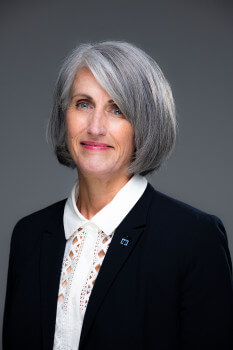


The Supplemental Nutrition Asstatance Program (SNAP) is a partnership between USDA, State and local agencies, universities and others that deliver nutrition education and promotion to low-income consumers, and the retail community that redeem benefits.This session will highlight the critical role of USDA’s partners in nutrition promotion and in food production and retail to make healthy choices a reality for every American.
Moderator: Shelly Pierce, Acting Deputy Associate Administrator, FNS, SNAP, Alexandria, VA
Healthy Choices, Healthy Outcomes, and Healthy Families
This speaker will provide us with some background on the importance of strengthening strategies to encourage healthy choices, healthy outcomes, and healthy families in this country and highlight ways we are using research, education, extension, and innovation to advance food and healthy choices.
Speaker: Sheila Fleischhacker, National Science Liaison, NIFA, USDA, Washington, DC
Healthy Places and Healthy Food
The Healthy Places and Healthy Food program operated by the DC Department of Health has conducted over 200 food retail environmental assessments measuring availability, quality, and price of healthy foods.
Speaker: Jo-Ann Jolly, Division Chief, Disease Preventin and Health Promotion Bureau, Community Health Administration, Washington, DC
SNAP Healthy Incentives Program
SNAP healthy incentive programs encourage people participating in SNAP to purchase health foods by providing a coupon, discount, gift card, bonus food items or extra funds. Various SNAP retailer incentives programs will be explained and highlighted.
Speaker: Brianna Moody, Program Analyst, FNS USDA, Alexandria, VA
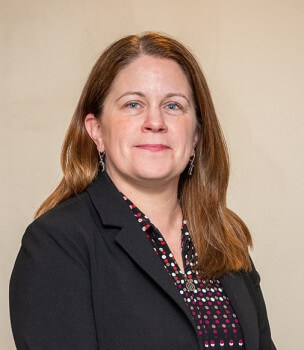


Gene drive uses CRISPR/CAS technology to promote (and in some cases, ensure) the propagation of a particular gene within a species. Gene drives have numerous potential benefits: they can target individual species with precision, replace environmentally hazardous pesticides, and effectively reduce a pest population with possibly far greater cost-effectiveness than previous technologies. However, the technology must be treated with care. Once a gene is released into the environment, it may be difficult or impossible to undo and so the ecological consequences must be carefully examined.
Moderator: Michael Watson, Administrator, USDA APHIS, Riverdale, Maryland, MD
Progress Towards Gene Drive Field Trials in Africa
This presentation will provide an overview of gene drives, highlighting progress by key development groups in Africa, including Target Malaria, Transmission Zero, and UCMI initiatives. It will also explore the Foundation for the National Institutes of Health's efforts to bring together scientists, developers, and regulators, identify critical gaps to address before field trials, and build capacity in developing countries to support safe and effective gene drive implementation.
Speaker: Justin Overcash, Technical Expert in Regulation and Policy, The Foundation for the National Institutes of Heal, North Bethesda, MD
Gene Drives for Invasive Plant Management
Invasive weeds negatively impact agriculture by reducing crop and rangeland productivity, damaging infrastructure, exacerbating environmental disasters, and hosting agronomically important plant pathogens and pests. Billions of dollars are spent on weed management annually in the U.S., and invasive weeds pose significant management challenges due to their widespread distribution and competitive features. Current weed management strategies using existing chemical and mechanical approaches are not cost-effective for infestations occupying millions of acres of inaccessible and ecologically sensitive terrain, such as rangelands and forests. Therefore, novel genetic biocontrol technologies, such as a weed-suppressive gene drive, are being investigated to assess its efficacy and safety in secure, high-containment USDA-ARS research facilities. A population suppressive gene drive targeting weed reproduction would provide an innovative weed management tool for species-specific, population-level weed control.
Speaker: Matthew Tancos, Research Plant Pathologist, USDA, Fort Detrick, MD
Gene Drive in Mice
Mice cause damage to agricultural and native ecosystems around the world. In agricultural systems, the economic impact is significant and leads to loss of crops and critical stored food sources. Rodenticides are the current control method and although effective the development of alternatives is important as rodenticide resistance continues to develop in mice, regulations on toxicants increases, and to curb environmental impacts of rodent control. Research into potential gene drive mechanisms and other genetic biocontrol technologies for control of mice is a benefit to agricultural systems as invariably new tools will be the outcome of these pursuits. However, the need to elucidate cultural and societal perspectives and safety mechanisms into the development and potential testing or application of any new genetic technology is critical to success and our moral obligation.
Speaker: Antoinette (Toni) Piaggio, Supervisory Research Biologist, USDA APHIS, Fort Collins, CO
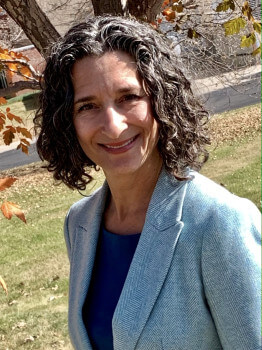

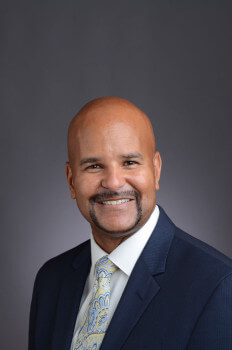

Recent events have served as reminders that there is benefit in diversifying trade. Diversification of agricultural trading partners is a priority for USDA leadership. The session will discuss rationale and tools for accomplishing more diversified export markets while acknowledging the benefits of working closely with our major trading partners. Diversification can be explored both in terms of trading partners as well as in terms of finding new markets for new ag products.
Moderator: Jason Hafemeister, A/DUS, TFAA, Washington, DC
Diversifying Agricultural Trade
How can we expand value-added product exports?
Speaker: Jim Sutter, CEO, U.S. Soybean Export Council, Chesterfield, MO
Diversifying Agricultural Trade
How to use Trade Policy to expand exports in under-performing markets including top markets?
Speaker: Ryan LeGrand, President & CEO, U.S. Grains Council, Washington, DC
Diversifying Agricultural Trade
How to use Trade Programs to boost exports other than in our top markets
Speaker: Mark Powers, President, Northwest Horticultural Council, Yakima, WA
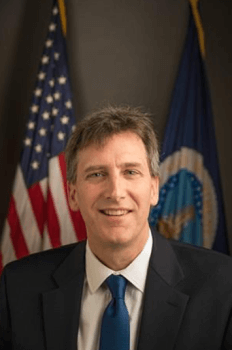
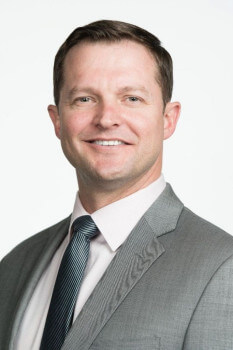
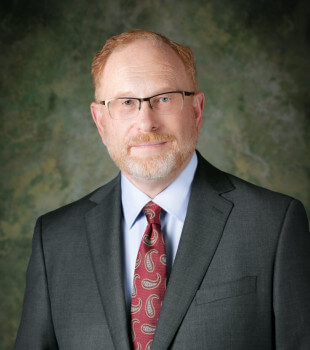
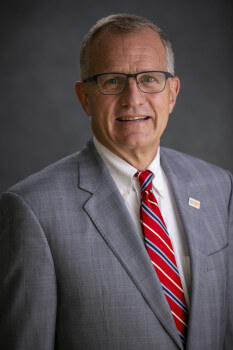
Several factors are driving the increased attention to these projects, including international and national policy efforts to develop green energy, as well as the growing demand for electricity for electric vehicles and artificial intelligence data centers. Additionally, at the farm gate, there are potentially large and steady returns from long-term energy contracts. This session will provide insights into the evolving landscape of solar energy and the impact they’re having on agricultural land across the country focusing on opportunities, challenges, and future directions.
Moderator: Pete Riley, Commodity Analyst - Retired, Formerly USDA-FPAC-EPAD, Arlington, VA
Outlook for Renewable Energy on Farms
The speaker will provide an overview of renewable energy through a discussion of solar and wind systems on U.S. agricultural lands as well as how the contracts for these systems are developed.
Speaker: Tyrone Thomas, General Counsel & Chief Compliance Officer, Dorall, LLC, Chicago, IL
Building Farm and Ranch-Friendly Solar Energy
As an officer in an agrivoltaic equipment manufacturing company, the speaker will discuss the challenges in implementing agrivoltaic projects and the future of on-farm solar energy from a practitioner’s perspective.
Speaker: Matt Beasley, Chief Commercial Officer, Silicon Ranch, Nashville, TN
Solar and Farmland Preservation
Across farm country, there are competing views about whether the growth of solar energy development poses a threat or opportunity for farmland preservation. The speaker will break down these contrasting views of solar on the farm landscape and ongoing research to understand the impacts that large-scale solar has on the rural communities that host them.
Speaker: Sarah Mills, Associate Professor, Taubman College of Architecture and Urban Planning, Ann Arbor, MI.
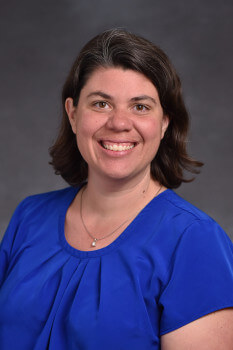



This session will explore how the U.S. Environmental Protection Agency’s recent efforts to bring pesticide registrations into compliance with the Endangered Species Act will impact agricultural pest control options.
Moderator: Kimberly Nesci, Director, USDA Office of Pest Management Policy, Washington, DC
Speakers:
- Specialty Crop Grower Perspective: Mike Aerts, Technical Committee Chair, Minor Crop Farmer Alliance, Maitland, FL
- State Agency Perspective: Steve Dwinell, Director, Public Health and Agricultural Resource Management Division, Vermont Agency of Agriculture, Food, and Markets, Montpelier, VT
- Environmental NGO Perspective: Brett Hartl, Government Affairs Director, Center for Biological Diversity, Washington, DC
- Row Crop Grower Perspective: Kyle Kunkler, Director of Government Affairs, American Soybean Association, Washington, DC
- Crop Consultant Perspective: James Todd, Chair, Governmental Affairs Committee, National Alliance of Independent Crop Consultants, Plainview, TX
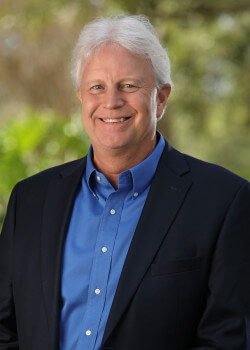
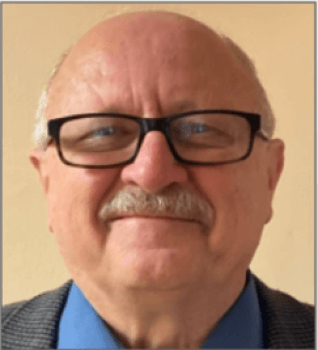
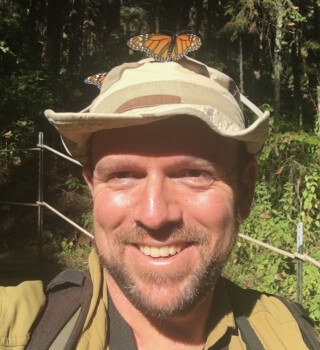

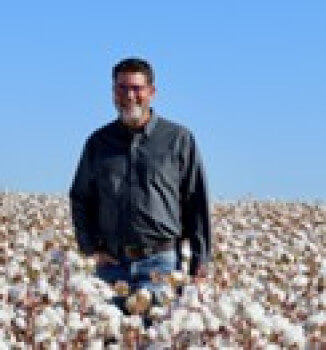
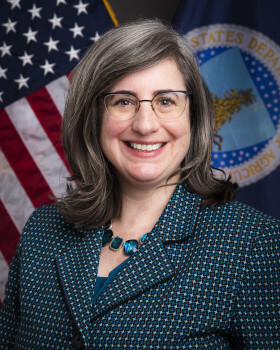
This session discusses recent trends in retail food prices, including USDA's 2025 Food Price Outlook forecasts and the impacts of food price changes and shifts in consumer spending on food assistance and the restaurant industry.
Moderator: Jay Variyam, Director, Food Economics Division, USDA Economic Research Service, Washington, DC
Speakers:
- Megan Sweitzer, Research Agricultural Economist, USDA Economic Research Service, Washington, DC
- Eliana Zeballos, Research Agricultural Economist, USDA Economic Research Service, Washington, DC
- Chad Moutray, Vice President, Research and Knowledge, National Restaurant Association, Washington, DC
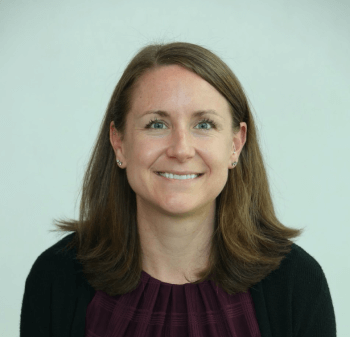
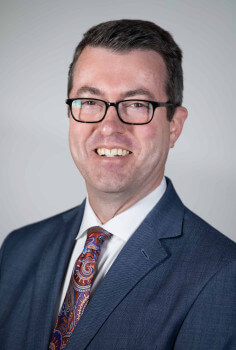
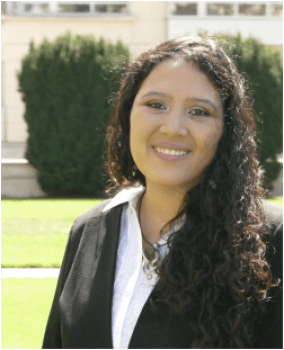
In February 2022, the first case of H5N1 clade 2.3.4.4b high pathogenicity avian influenza (HPAI) was identified in poultry in the USA. In March 2024, diagnosis in dairy cattle became a major epizootic event. This panel will showcase the rapid response research conducted by USDA ARS to quickly understand disease spill over, disease transmission and testing of food safety standards to inform public and animal health responses.
Moderator: Roxann Motroni, National Program Leader, USDA ARS, Beltsville, MD
Speaker: Deana Jones, Center Director, USDA-ARS, Atlanta, GA
Rapid Response Research Conducted at the National Animal Disease Center
Dr. Anderson will discuss the resesearch conducted on swine influenza and how AI/ML pipelines that were developed for swine influenza surveillance programs were adapted to enable rapid genomic analysis of the dairy outbreak.
Speaker: Tavis Anderson, Research Biologist, USDA ARS, Ames, IA
Poultry Industry Perspective:
Speaker: Oscar Garrison, Senior Vice President of Food Safety, United Egg Producers, Hoschton, GA
Dairy Industry Perspective:
Speaker: Jaime Jonker, Chief Science Officer, National Milk Producers Federation, Washington, DC
State Veterinarian Perspective:
Speaker: Nora Wineland, State Veterinarian of Michigan, Michigan Department of Agriculture and Rural Devel, Lansing, MI


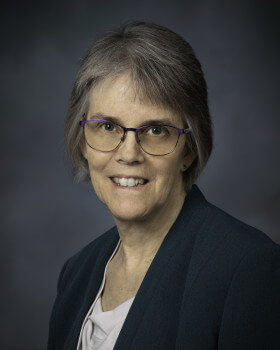
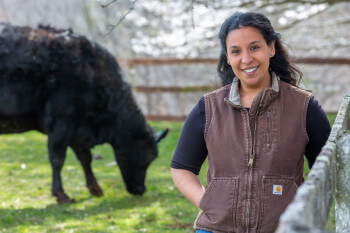
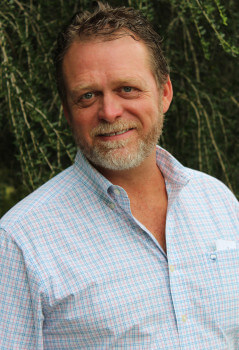
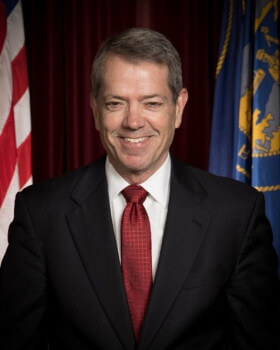
Secretary of Agriculture Brooke Rollins

This session will explore how the global shipping industry continues to evolve in response to market forces, the uncertainty resulting from regional conflicts, and the latest shipping developments in the Western Hemisphere.
Moderator: Ryan Scott, Managing Director, Global Market Analysis, Foreign Agricultural Service, Washington, DC
Shipping Challenges in the Red and Black Seas
This presentation will address shipping challenges affecting countries sourcing wheat and other agricultural commodities from Black Sea countries, while also providing insights on the difficulties of shipping flour through the Red Sea.
Speaker: E. Gunhan Ulusoy, Chairman of the Board, Ulusoy Flour Mills, Turkey
International Trade Insights from the American Association of Port Authorities
This presentation will provide insights from the American Association of Port Authorities, the unified voice of the seaport industry in the Americas, representing more than 130 public port authorities in the U.S., Canada, the Caribbean, and Latin America.
Speaker: Cary Davis, President & CEO, American Association of Port Authorities (AAPA).
U.S. Agricultural Shippers Perspective (factors impact of U.S. container shipping flows and trade)
An overview of U.S. agricultural shippers’ challenges due to shifts in ocean routes caused by Geopolitical shipping issues. Shipping diversions bring in more delays, add trans-shipments, and increase dwell times that result in more containers staying a long time in the ports.
Speaker: Peter Friedmann, Executive Director of the U.S. Agriculture Transportation Coalition.


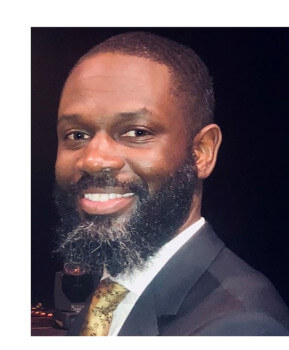

Food packaging is essential for protecting food from damage and spoilage from the farm to the consumer’s table. While plastic packaging is inexpensive and provides reasonable protection, single-use packaging contributes to over 14 million tons of plastic waste in the U.S. each year, affecting landfills, incinerators, oceans, and even human health. Consumers and corporations are increasingly seeking better solutions, and trade partners are starting to implement regulations.
This session will explore the role of biobased materials in sustainable food packaging and the broader implications for a healthy rural bioeconomy. With the growing demand for alternatives to single-use plastics, experts will discuss the challenges associated with current food packaging materials, emerging sustainable practices, and innovations in biomaterials that can meet consumer and regulatory expectations. The presentations will highlight the need for collaboration between agricultural sectors and the development of sustainable materials to support both environmental goals and economic growth.
Moderator: Cynthia West, Director, Forest Service - Forest Products Laboratory and No, Madison, WI
The Need for Sustainable Packaging: An Industry Perspective
Consumers, corporations, and foreign governments are demanding more sustainable food packaging. Frustration with waste and poor performance drives consumer demand, while corporations aim to minimize waste and fulfill sustainability commitments. This presentation will analyze the emerging requirements driving a shift in packaging practices.
Speaker: James Glueck, Executive Director, Washington, DC
The Biomaterial Landscape: Opportunities for Replacing Single-Use Plastics with Biodegradable, Renewable Biomaterials
Biomaterials range from paper to bacterial-based PHA to nanocellulose. These options are typically non-toxic, biodegradable, and derived from renewable resources. The speaker will discuss different types of biomaterials, their potential roles in the packaging landscape, and the advancements needed to make them competitive with traditional materials.
Speaker: Ken Zwick, Assistant Director - Research, Forest Service - Forest Products Laboratory, Madison, WI
The Future Bioeconomy: Optimizing and Commercializing Biomaterials from Rural Biorefineries
As "biorefineries" emerge across rural America to convert agriculturally derived feedstocks into biofuels, including sustainable jet fuel, research is being conducted to improve their commercial viability by developing marketable co-products, particularly eco-friendly packaging materials. The speaker will share insights on USDA-ARS joint research efforts with strategic commercial partners aimed at creating sustainable biomaterials, many of which qualify for USDA BioPreferred status.
Speaker: William Orts, Research Leader, USDA-ARS Western Regional Research Center, Albany, CA

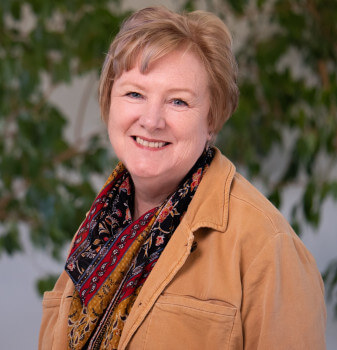
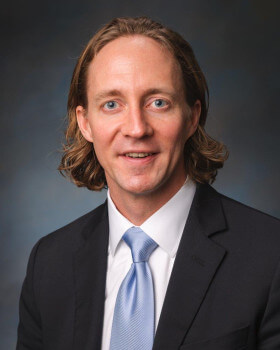

This session will explore the complexities of our food supply chains and how they can impact food safety. The panel will discuss a variety of relevant issues and tools, including wholesale models, retail distribution points, tracebacks and traceability. Representatives from different points along supply chains will discuss the emerging and converging challenges within our evolving food supply chains.
Moderator: Robert Witte, Deputy Assistant Administrator, Office of Investigation, Enforcement and Audit, USDA, Food Safety Inspection Service, Washington, DC
Industry Perspective on Food Safety in Modern Supply Chains
Speaker: Ashley Eisenbeiser, Vice President, Food and Product Safety Programs, FMI, Washington, DC
Wholesaler Perspective on Food Safety in Modern Supply Chains
Speaker: Shane Sampels, Senior Director FSQA, Produce, Sysco Corporation, Houston, Texas
Academia Perspective on Food Safety in Modern Supply Chains
Speaker: Shauna Henley, Family & Consumer Sciences Senior Agent, University of Maryland Extension, Baltimore County, Cockeysville, MD
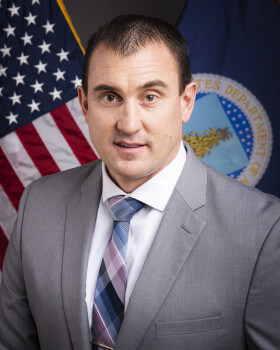
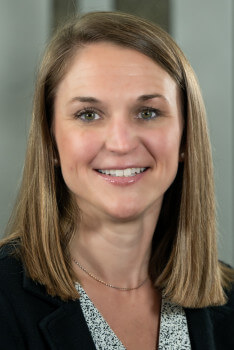

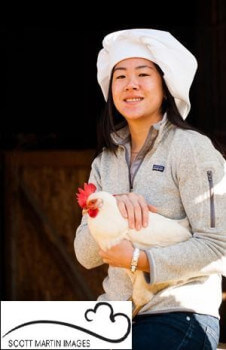
How investments in healthy school meals create opportunities for children, producers, and their communities.
Nearly 4.7 billion school meals were served in Fiscal Year (FY) 2023. School and other Child Nutrition Program meals present a reliable and meaningful market opportunity for producers. That opportunity was enhanced in Spring 2024 when USDA announced a series of gradual changes to nutrition standards for school meals to include less sugar and provide flexibility to schools. The strategy, which reflects close attention to public feedback and the latest Dietary Guidelines for Americans, will be implemented between Fall 2025 and Fall 2027.
Moderator: Julie Brewer, Director for Community Food System Division, USDA Food and Nutrition Service
Implementing Farm to School and Local Food for Schools and Its Impact on Maryland
From sub-awarding funds directly to School Food Authorities (LEAs in MD) to a centralized procurement model and then a Food Hub model, learn about the lessons learned in establishing three food hubs working with all 24 LEAs in Maryland to serve its four regions. Discover how the LFS, Patrick Leahy Farm to School program, and FNS State Formula grants are improving access and increasing procurement of local foods in Maryland school meals.
Speaker: Kanika Campbell, Specialist for Select Nutrition Initiatives, Office of School & Community Nutrition Program, Maryland, Baltimore, MD
Community Nutrition Program, Maryland, Baltimore, MD
Farm to Institution and Local Food for Schools: Investments to Support Food Hubs
Learn about a family business that aggregates locally grown and raised products, sources for food service, and conducts value-added food production to provide a reliable, high-volume distribution option for WV Made Products. WV Harvest will share how AMS Farm to Institution and Local Food for Schools funding has enabled them to engage with current growers, producers, and processors to begin the strategic aggregation of locally grown, raised, and produced food products under the WV Harvest brand.
Speaker: Chris Yura, Owner, West Virginia Harvest, Morgantown, WV


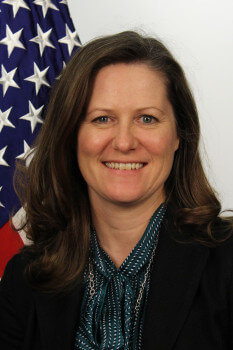
The session will include presentations on USDA's preliminary supply and demand forecasts for 2025/26 for grains and oilseeds, as well as a discussion of the key factors impacting the outlook.
Moderator: Kevin Wittenberger, Agricultural Economist, Office of the Chief Economist, USDA, Washington, DC
Speaker: Luiz Fernando Garcia da Silva, President, Portos do Paraná, Brazil
Speaker: Brad Rippey, USDA Meteorologist, USDA Office of the Chief Economist, Washington, DC
Speaker: Aaron Ates, Agricultural Economist, Economic Research Service, Kansas City,

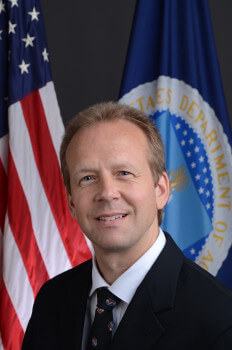

Moderator: Kent Lanclos, Fibers Analyst, USDA World Agricultural Outlook Board, Washington, DC
Next Steps in U.S. Textile Policy
California recently adopted SB-707, the Responsible Textile Recovery Act of 2024 which establishes the first Extended Producer Responsibility (EPR) textile waste recycling program in the United States. This legislation makes manufacturers of textile and apparels responsbile for the entire life cycle of their products, including disposal. The presentation will discuss EPR programs and other policy issues affecting the U.S. textile and apparel industries.
Speaker: Stephen Lamar, President and CEO, American Apparel & Footwear Association, Washington, DC
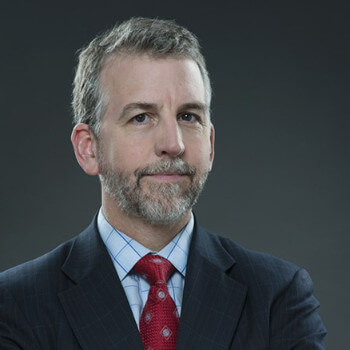
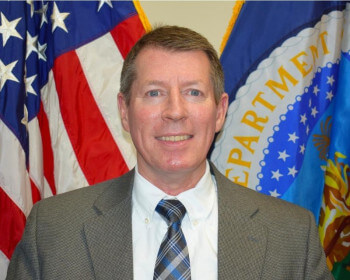
Moderator: Mark Simone, Chairperson of the Interagency Commodity Estimates Committee for Food Grains, Office of the Chief Economist, USDA, Washington, DC
Moderator: Mike Jewison, Chairperson of the Interagency Commodity Estimates Committee for Feed Grains, Office of the Chief Economist, USDA, Washington, DC
Managing Risk in Volatile Markets
Speaker: Matt Bennett, Co-Founder, AgMarket.Net, Winsor, IL


Moderator: Anthony Fischer, Agricultural Economist, World Agricultural Outlook Board, USDA, Washington, DC
The Current Trade Landscape for Red Meats
Speaker: Erin Borror, Vice President, Economic Analysis, U.S. Meat Export Federation, Denver, CO


This session will provide success stories from the Local Food Purchase Assistance (LFPA) and Local Food for Schools (LFS) programs, shared from the perspective of State Department of Agriculture cooperators. Presenters will discuss program goals, the types of projects implemented by cooperators, and the most commonly purchased products. The session will also address the challenges cooperators have encountered in implementing their projects and share insights on how to best support specialty crop producers.
Moderator: Jennifer Tiller, Chief of Staff and Senior Advisor, Office of the Deputy Secretary and Secretary for Food, Nutrition and Consumer Services,
Speaker: Ashley Randle, Commissioner, Massachusetts Department of Agricultural Resources, Boston, MA
Speaker: Jeff Witte, Secretary, New Mexico Department of Agriculture, Las Cruces, NM

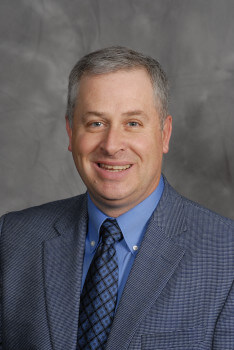
Moderator: Aileen Mannix, Senior Director, Trade Policy and Geographic Affairs, Foreign Agricultural Service, Washington, DC
Sucro's Path of Innovation and Reinvestment
Mr. Hill will speak to the factors that make Sucro unique among cane sugar refiners in the United States.
Speaker: Don Hill, Chairman, Sucro Can Sourcing, Coral Gables, Florida

The Federal Crop Insurance Program, a public-private partnership between the U.S. government and Approved Insurance Providers (AIPs), is an important safety net for America’s farmers and ranchers. This session aims to explore the evolution of crop insurance as a steadfast and reliable risk management tool for agricultural producers against adverse weather events.
Moderator: Robert Ibarra, Chief Operating Officer, Farm Production and Conservation, Washington, DC
Portfolio Size, Growth, and Penetration of the Federal Crop Insurance Program
This discussion provides a comprehensive overview of the insurance portfolio composed of individual policies relevant to crop production that are currently in effect within the Federal Crop Insurance Program (FCIP). The focus will be on analyzing trends in the book of business as well as rates of market penetration over the period from 2007 to 2022.
Speaker: Francis Tsiboe, Research Agricultural Economist, Economic Research Service, Lawrence, KS
Crop Insurance: A Farmer's Perspective
Guidry will discuss crop insurance as a risk management tool with a producer who participates in the Federal Crop Insurance Program.
Speaker: Charles Guidry, Producer, Charles Guidry Farms, Erath, LA
Recent Innovations in Crop Insurance
Mr. White will explore recent program innovations that provide producers with additional insurance options to help protect against hurricanes and tropical storms using parametric insurance principles.
Speaker: Zachary White, Director of Actuarial, Pricing & Filing Division, Product Management, Risk Management Agency, Parkville, MO

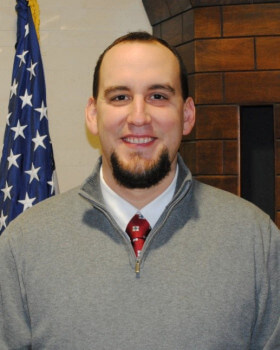


U.S. leadership in agricultural productivity and production efficiency contributes to global food security and strengthens the U.S. economy. However, climate change poses extreme challenges to our food systems and natural resources by altering weather patterns, increasing the incidence of stress-inducing heat and drought, and creating conditions that are favorable to pests, diseases, and wildfires.
Moderator: Steve Ostoja, Director, USDA California Climate Hub, USDA-ARS, Davis, CA
How NPGS Maintains Critical Germplasm and Serves as a Foundation for Innovation
The U.S. National Plant Germplasm System (NPGS) is a collaborative effort to safeguard the genetic diversity of agriculturally important plants. The NPGS is managed by the Agricultural Research Service (ARS), the in-house research agency of the United States Department of Agriculture (USDA). Funding for the NPGS comes primarily through appropriations from the U.S. Congress. However, the NPGS is a partnership between the public and private sectors. Many NPGS genebanks are located at state land-grant universities.
Speaker: Neha Kothari, National Program Leader, USDA-ARS, Beltsville, MD
Wild Relatives of Tomato and Applications for Breeding
The speaker will explore novel and more efficient approaches for plant improvement that utilize genome sequence data, data mining, and information sciences. He will discuss priorities for discovery and application including resistance to bacterial spot and bacterial canker, as well as fruit quality, which is defined by color, color uniformity, nutritional value, and taste.
Speaker: David Francis, Professor, The Ohio State University, Wooster, OH
Accelerated Crop Improvement Using Technology Platform
INARI's SEEDesign™ technology platform addresses the immense biological complexity of plants through the latest innovations in genomics, artificial intelligence, and multiplex gene editing. Through analysis of diverse, ever-growing data sets, we work to pinpoint exactly which edits and edit types will have the most positive impacts at specific locations within a crop's DNA structure. We then execute these edits—all at the same time. The result: accelerated crop improvement.
Speaker: Emily Negrin, Director of Plant Breeding, INARI
Global Seed Trade
Founded in 1883, the American Seed Trade Association (ASTA) is one of the oldest trade organizations in the United States. ASTA works on behalf of the seed industry to promote the research, development, and movement of quality seed to meet the world’s demand for food, feed, fiber, and fuel.
Speaker: Samuel Crowell, Senior Director, International Programs and Policy, American Seed Trade Association, Alexandria, VA
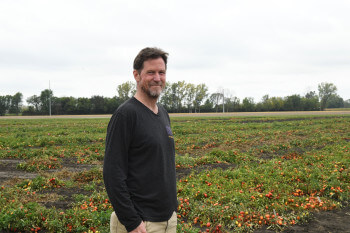
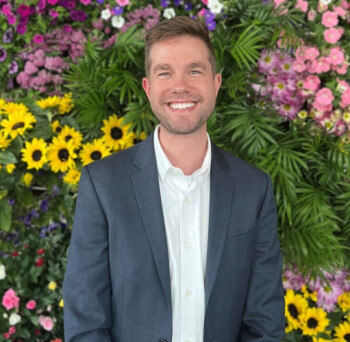
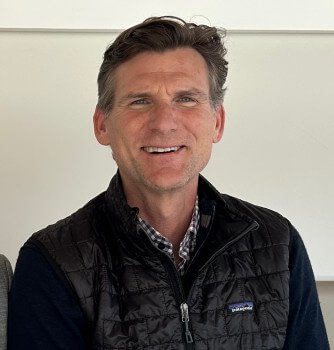

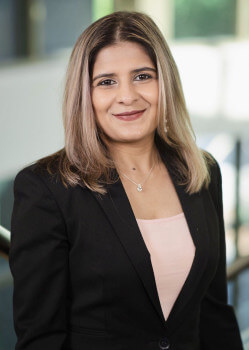
This session will include presentations on USDA's preliminary supply and demand forecasts for 2024/25 for livestock and poultry, along with a discussion of the key factors impacting the sector.
Moderator: Seanicaa Herron, Founder, Freedmen Heirs, Washington, DC
Outlook for the U.S. Livestock and Poultry Sector
Speaker: Michael McConnell, Livestock, Poultry, and Dairy Analyst, World Agricultural Outlook Board, USDA, Washington, DC
Wholesale Suppliers’ Approach and Challenges to the Current Consumer Demand Environment
Speaker: Altin Kalo, Head Economist, Steiner Consulting, Manchester, NH
Trends in Consumer Demand and Purchasing Patterns for Meat and Proteins
Speaker: Brian Earnest, Lead Economist-Animal Protein, CoBank
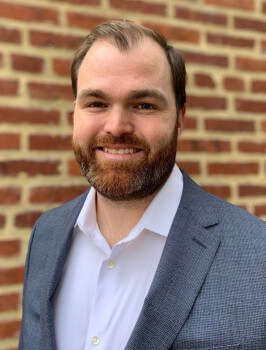


An expert panel will present USDA's first 2025/26 cotton outlook, discuss the impacts of de minimis shipments of textile and apparel products, and address issues related to global textile and apparel sustainability and recovery.
Moderator: Leslie Meyer, Agricultural Economist, USDA Economic Research Service, Washington, DC
Outlook for the U.S. and World Cotton Markets
USDA will present its first preliminary forecasts of U.S. and world cotton production, consumption, and trade for the 2025/26 marketing year.
Speaker: Kent Lanclos, Fibers Analyst, USDA World Agricultural Outlook Board, Washington, DC
De Minimis Shipments and Cotton
An acceleration in online spending was among the changes in consumption patterns that emerged from the COVID pandemic. In particular, there was rapid growth in sales from online retailers leveraging de minimis shipments. The rise of the de minimis channel has had consequences for the global cotton supply chain, including the bypassing of forced labor protections and a decline in cotton’s market share.
Speaker: Jon Devine, Senior Economist, Cotton, Inc., Cary, NC
EU Regulatory Outlook: Implications for Cotton
The EU is developing policies to reduce the negative social and environmental impacts of textile consumption. As the world’s largest textile market, these changes could significantly impact the global cotton sector. This presentation will include a regulatory update while making the case for cotton as a global public good.
Speaker: Eric Trachtenberg, Executive Director, International Cotton Advisory Committee, Washington, DC


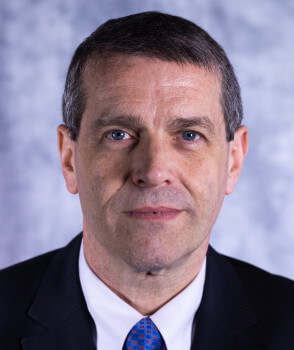

This session will discuss the current state and future of the U.S. refining sector from three different perspectives on cane and beet sugar.
Moderator: Rob Johansson, Director of Economics & Policy Analysis, American Sugar Alliance, Arlington, VA
Cost of Production of Sweeteners in the United States and Mexico
This presentation will provide a comprehensive view of increasing sweetener cost trends in both the United States and Mexico from the perspective of the world's leading sweetener consulting firm.
Speaker: Paula Bauer,
VP North America Agriculture, GlobalData, Chatfield, MN
Sugarcane Growers' Perspective on the Sector's Challenges and the Role of USDA Policy
Speaker: Travis Medine, Director, Sugar Cane League, Thibodaux, LA
Sugarbeet Growers' Perspective on the Sector's Challenges and the Role of USDA Policy
Speaker: Neil Rockstad, President, American Sugarbeet Growers Association, Washington, DC
Anti-Dumping and Countervailing Duty Investigations of Sugar from Mexico
Speaker: Brad Gehrke, Senior International Economist, USITC, Washington, DC
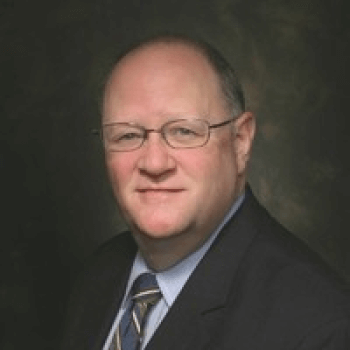

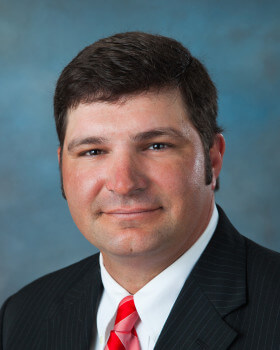
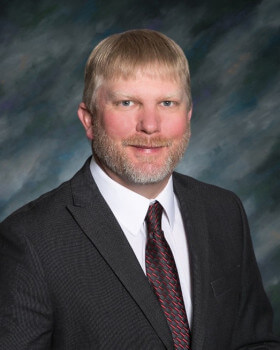

The panel will focus on housing in rural America. The panelists will discuss ways in which USDA and other organizations may support agricultural producers and rural citizens in housing development. Creating more affordable housing is essential for the development of rural areas and also supports job creation and retention of existing employees in the agriculture sector.
Moderator: Angilla Denton, Deputy Administrator, USDA - Rural Development, Multifamily Housing, Washington, DC
Farmworker and Rural Workforce Housing Needs and Solutions
Speaker: Dan Rogers, Director of Production & Preservation, USDA - Rural Development, Multifamily Housing, Washington, DC
Farmworker and Rural Workforce Housing Needs and Solutions
Speaker: Marty Miller, Executive Director, Office of Rural and Farmworker Housing, Yakima, WA
Farmworker and Rural Workforce Housing Needs and Solutions
Speaker: Nicholas Tsimortos, Associate, Arnall Golden Gregory LLP, Washington, DC
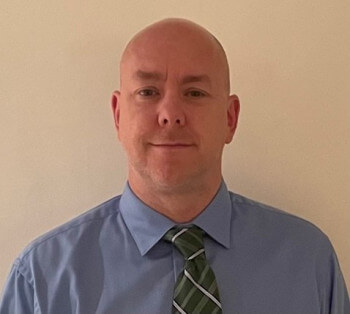


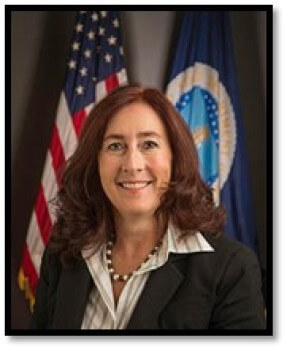
Innovative Solutions to Advance Sustainability
Agriculture is the major consumer of U.S. and global freshwater resources and a significant portion of energy use. Technologies such as AI and precision farming can provide useful information to build more efficient food systems to reduce energy, nutrient, and water use. In this session, a panel of speakers will focus on technology innovations that have potential as sustainable solutions, from reducing water consumption using smart-irrigation technology, to using AI for monitoring vegetation and soil health, to regenerative agriculture practices.
Moderator: Julie Suhr Pierce, National Economist, Natural Resources Conservation Service, USDA, Washington, DC
What's Next in Geospatial Technology Innovation for Sustainable Agriculture and Food Security
This talk sets out TGI's perspective on research and innovation needed to develop next-generation agriculture and food systems applications that take advantage of emergent geospatial technologies.
Speaker: Rachel Opitz, Program Manager, Taylor Geospatial Institute (TGI), St. Louis, MO
Technology Adoption Decisions in Complex Settings
In this presentation, we’ll explore some key factors that influence these decisions including technological advancements, different cultivation strategies, risk and uncertainty, management approaches, market and non-market incentives, data limitations, institutional constraints, and personal values.
Speaker: Charles Rice, Kansas State University, University Distinguished Professor, Soil Microbiology, Manhattan, KS
Venture Capital Funding for Technology and Innovation to Scale Regenerative Agriculture
Speaker: Mark Lewis, Managing Partner, Trailhead Capital, Denver, CO
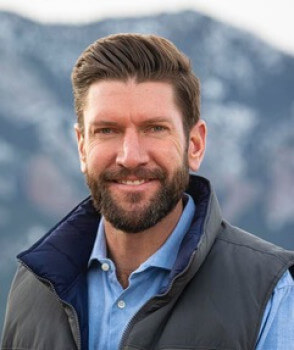
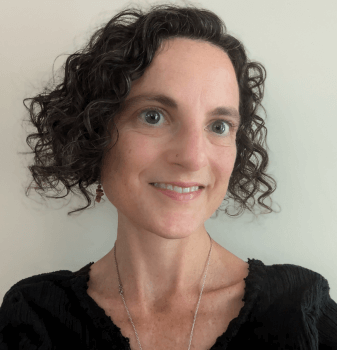

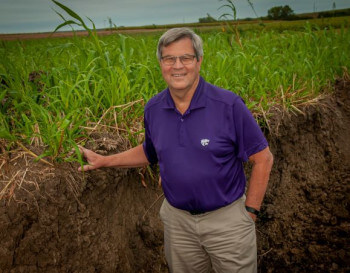
Moderator: Angel Teran, Agricultural Economist, Economic Research Service, USDA, Kansas City, MO
Outlook for the U.S. Dairy Sector
Outlook for the U.S. dairy sector through 2025.
Speaker: Peyton Ferrier, Agricultural Economist, World Agricultural Outlook Board, USDA, Washington, DC
Why Milk Components Matter More than Milk Production
Changes in milk composition over the past 20 years have had implications for milk production and dairy product markets.
Speaker: Corey Geiger, Lead Economist, CoBank, Greenwood Village, CO
Genetics and Genomics Transforming Milk Composition
Trends and developments in the dairy industry as they relate to a greater focus on milk composition in dairy production.
Speaker: Jonathan Lamb, Dairy Farmer, Board Member, Oakfield Corners Dairy, Council on Dairy Cattle Breeding, Oakfield, NY
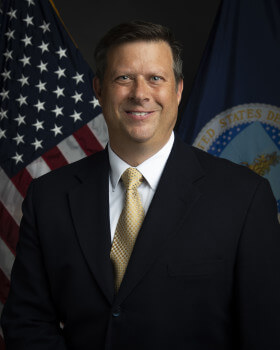
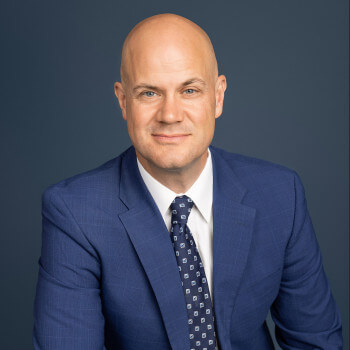
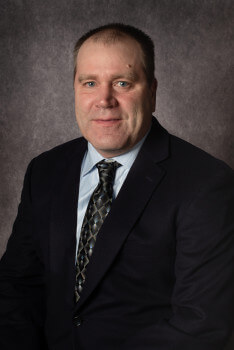

This session will provide an overview of the trends and recent developments in organic production and consumption. Presentations will discuss up-to-date information on the Strengthening Organic Enforcement Final Rule, the use of federal programs by organic farmers, and global trends in organic agriculture.
Moderator: Sharon Raszap Skorbiansky, Research Economist, USDA-ERS, Silver Spring, MD
AMS Policy Update: Looking at Enforcement Policy and Enforcement Progress
Speaker: Scott Rice, Senior Director, Regulatory Affairs, Organic Trade Association
Speaker: Julia Barton, Organic Farmers Association, Washington, DC
Speaker: Helga Willer, Research Institute of Organic Agriculture (FiBL), Frick, Switzerland
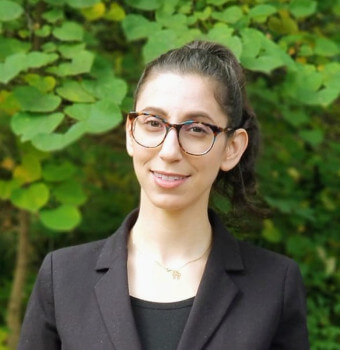
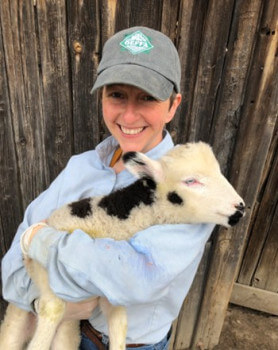
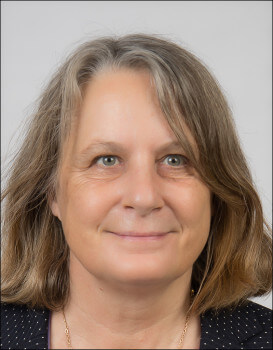
This session will highlight youth and women’s unique roles in agriculture as leaders and innovators, discussing how they are responding to meet the needs of the agricultural sector. Young people and women are increasingly at the forefront in agriculture and making a difference in a number of areas, such as entrepreneurship and agribusiness, agri-tech innovation, education and advocacy, community leadership, and global and local policy influence. This session will feature the impact youth and women exercise in these areas and how their leadership is transforming the agricultural landscape, driving innovation, and ensuring that the sector remains forward-looking. This session will focus on how organizations around the world are encouraging young people and women to engage more in agriculture as with their leadership, energy, creativity, and innovation they can contribute to global food security.
Moderator: Cynthia Guven, Senior Strategic Partnerships Liaison and USDA Chief International Agreements Officer, FAS, Washington, DC
Speaker: Jessica Cabrera, Managing Director, American Farm Bureau Federation, Washington, DC
Speaker: Elly Sukup, Director of Program Development, Global Farmer Network, Des Moines, IA

